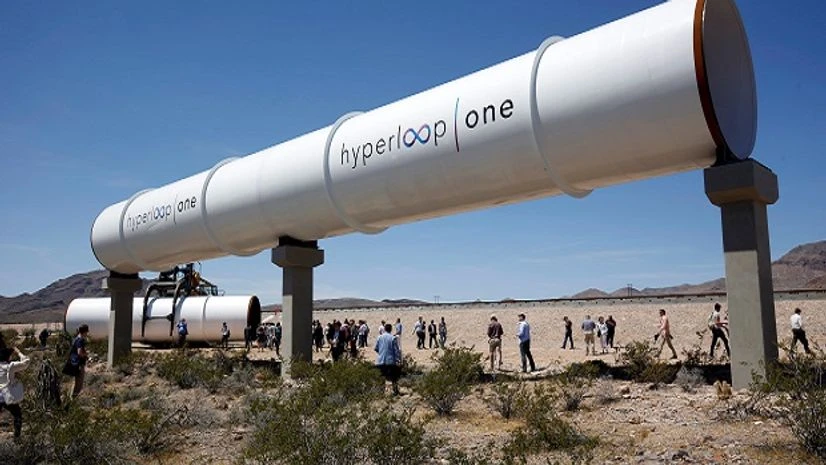Imagine traveling between Mumbai and Pune in just 25 minutes, zipping through a hollow tube in a high-speed hyperloop pod — a futuristic vision that could become a reality in a few years, thanks to the sharp minds at IIT Madras. That’s 1,000 kmph or even more!
The IIT Madras has recently marked a major milestone in transportation innovation by completing a 410-meter Hyperloop test track, the first such experiment in Hyperloop technology in India.
The announcement was made by Union Railway Minister Ashwini Vaishnaw on Thursday, who shared the news on social media along with a video showcasing the newly built track.
“India’s first Hyperloop test track (410 meters) completed. Kudos to Team Railways, IIT-Madras’ Avishkar Hyperloop team, and TuTr (an incubated startup),” the union minister wrote on X.
Collaboration for vacuum train tech
The project is spearheaded by the Avishkar Hyperloop team of IIT Madras in collaboration with TuTr, a startup nurtured within the institute’s incubation ecosystem. The Avishkar Hyperloop team consists of 76 undergraduate and postgraduate students from IIT Madras who are working on developing and testing this cutting-edge technology.
Also Read
The implementation plan involves two phases. The initial phase will focus on building an 11.5-kilometer test track to demonstrate the functionality and reliability of the system. Upon successful validation, the second phase will expand the test track to approximately 100 kilometers, paving the way for its real-world applications.
The Mumbai-Pune hyperloop project
The Mumbai-Pune corridor has been identified as the potential site for India’s first full-scale Hyperloop project. If implemented, this system could reduce the travel time between Mumbai and Pune to just 25 minutes, faster than the aeroplane.
Pune-based startup Quintrans Hyperloop aims to launch its first operational hyperloop cargo system by 2027-28, according to media reports. The cutting-edge transport solution is expected to facilitate ultra-high-speed inter-city connectivity between major Indian cities such as Mumbai and Pune, Chennai and Bengaluru, and Delhi and Chandigarh.
The Hyperloop system promises several advantages, with travel between Mumbai and Pune projected to take less than 25 minutes—faster than air travel! Ticket prices for a one-way journey are expected to range between Rs 1,000 and Rs 1,500, making it approximately half the cost of a direct flight.
According to reports, Quintrans Hyperloop is currently constructing a 100-meter pilot facility in Pune to showcase and validate its technology.
What is the Hyperloop technology?
Originally conceptualised by Elon Musk in 2012, the Hyperloop idea has gained worldwide traction as a revolutionary transportation model.
Hyperloop is a high-speed transportation system in which pods, essentially pressurised vehicles, travel at extraordinary speeds through low-pressure tubes. Each pod can accommodate 24 to 28 passengers, enabling direct, non-stop point-to-point travel. This innovative system is seen as a promising solution for addressing the growing demands for efficient and sustainable transportation. India’s foray into Hyperloop technology represents a significant leap toward futuristic transportation systems.
Hyperloop trains are designed to reach speeds of up to 1,100 kmph, with an operational cruising speed of around 360 kmph. These trains operate within vacuum-sealed tubes, significantly reducing friction and allowing for unparalleled travel speed and energy efficiency.

)